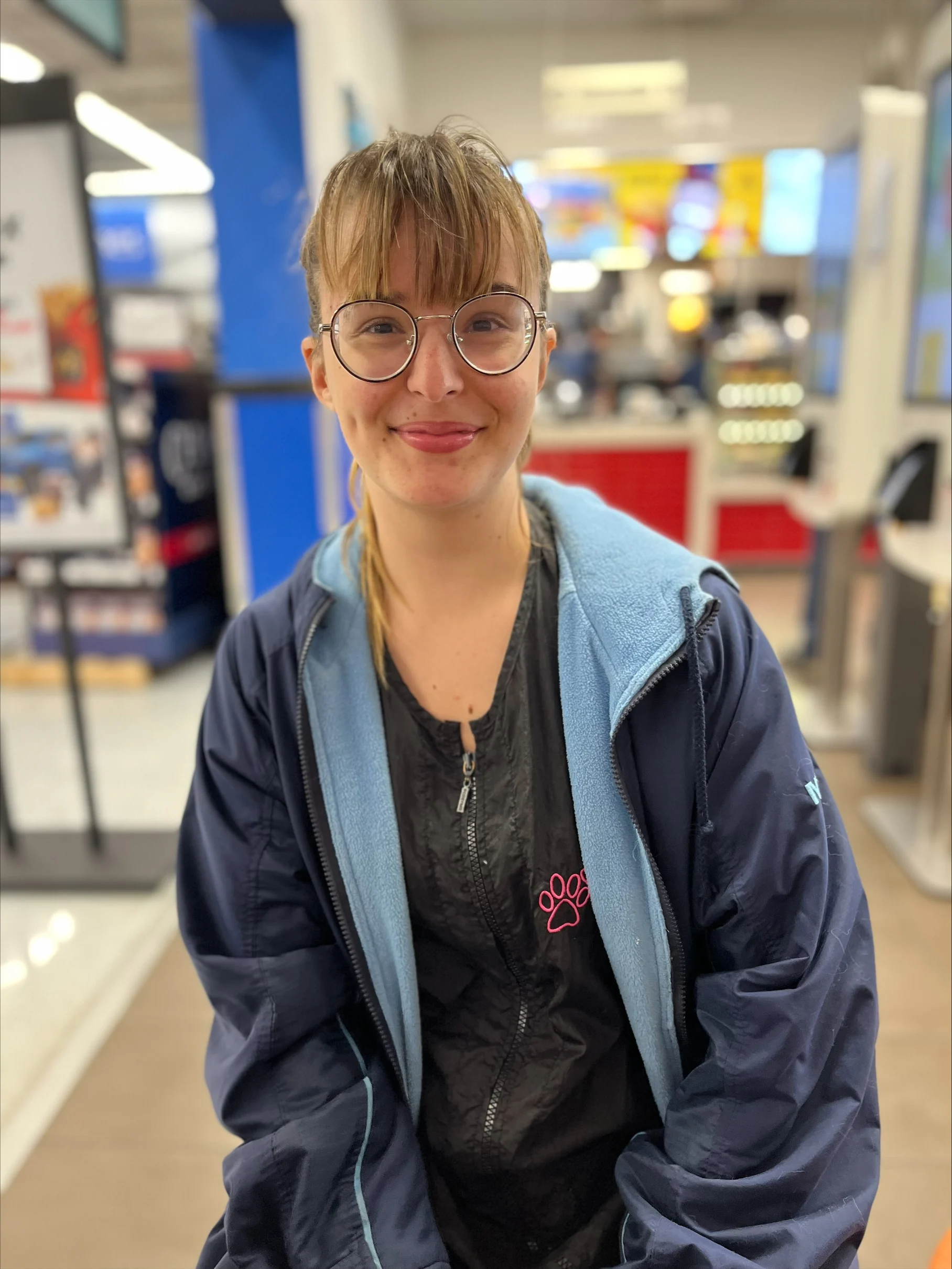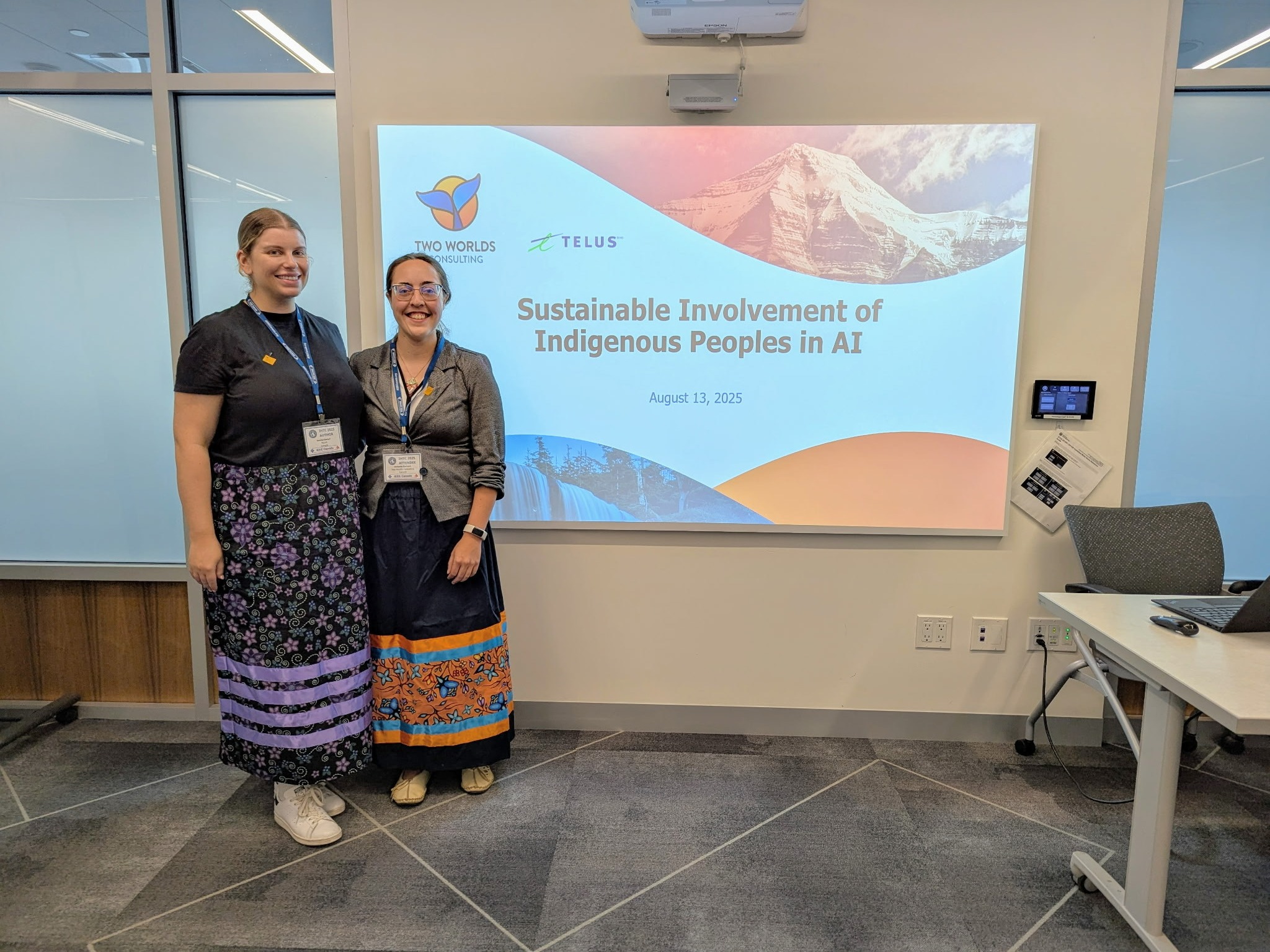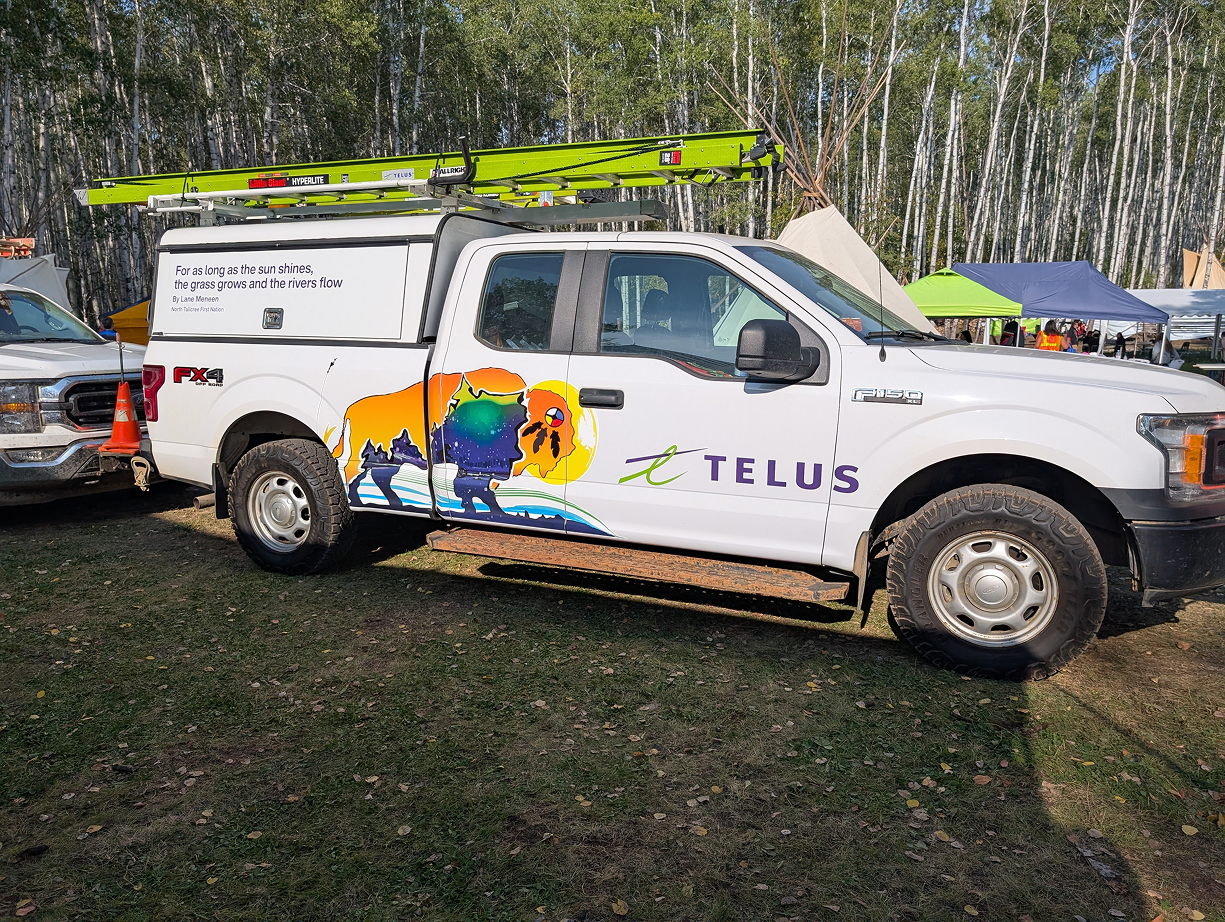
Connecting Canada
Connecting young adults in need
Nov 19, 2023
Turning 18 means legally becoming an adult. It’s a time to explore new opportunities, responsibilities and all that life holds in store.
For young people aging out of the system of child protective services, it can also be a particularly challenging life change punctuated by various obstacles as the support structures they grew up with are stripped away. TELUS Internet for Good® can play a crucial role in the successful integration into adulthood. It’s a transition Naomie Croze knows a thing or two about.
Last May, Naomie Croze took the plunge into adult life when she said goodbye to the foster family she had lived with in Rimouski for the last four years. At 18 years old, she has her whole life in front of her, but also plenty to worry about with the responsibility of finding an apartment, paying her bills and taking care of her needs. Fortunately, Internet access won’t be one of her concerns. Through the
TELUS Internet for Good program
for young adults leaving the child protective services system, Croze can start her life as an independent adult with a low-cost plan for a fast and reliable Internet connection at home.
Naomie Croze, beneficiary of the TELUS Internet for Good program
A big relief
“Not having to deal with an Internet bill that's too high for my means is definitely one less source of stress in my life. I already have a lot to think about, and it’s easy to start feeling anxious,” she says.
As a clerk in a pet grooming salon and cashier in a large hardware store, Internet access is essential for work, since her shifts are managed through a mobile app and email.
“Internet also lets me stay in contact with my little brother, who’s in a foster family in Sayabec. We write to each other a lot,” Croze says.
Since leaving her foster family a few months ago, Naomie has been living on her own in an apartment in Rimouski. With her two jobs, she sometimes works up to 12 hours a day. It’s not always great for her social life, but at least she’s managing to make ends meet.
“I’d love to be able to see my friends more often and take a little vacation once in a while, but I quickly realized that I’d have to work hard to be successful and independent in life. I was fortunate enough to have access to the Programme Qualification des Jeunes (PQJ) and get support in my transition to adult life,” she says. “It may seem silly, but they taught me to manage my budget, build my resume, and open a bank account. That program was an essential part of the progress I’ve made over the past few years.”
The PQJ was also where Dario Côté, an educator at the Centre jeunesse du Bas-Saint-Laurent (CISSS BSL), first told Croze about the Internet for Good program. The PQJ enables adolescents placed in youth accommodations under the Youth Protection Act or the Youth Criminal Justice Act to start independent lives as young adults. Through this program, they can choose to receive intensive support from an educator like Côté for a period of three years starting at age 16. Côté has made it his mission to help young people who are most vulnerable and at risk of marginalization, and he’s happy to promote the TELUS program to his clients.
The cell phone and Internet generation
“Young people don’t call each other anymore, they send texts. For us, making sure they have access to affordable Internet at home lets us stay in contact with them. Once they turn 18, they don’t want to go all the way to the CLSC to come and see us. So we text, we chat, we email. Either we set up a time to meet with them in person, or we work things out over email. They know they can always write to me,” says Côté.
The Centre jeunesse du Bas-Saint-Laurent employs PQJ educators working all across the Bas-Saint-Laurent region, from Kamouraska to Matane and from Le Témiscouata to La Matapédia. They receive specialized training to carry out their mission.
“People think that the young people leaving our youth centres are just left to their own devices once they turn 18. But nothing could be further from the truth, especially since the PQJ was established in our region in 2007. My role is also to support young people who have previously taken part in the program, even if their file is closed. I also maintain a solid network of contacts that serves as a database of resources I can share with them. We don’t let our kids down,” Côté adds.
A computer as good as new
With the addition this year of a partnership with the OPEQ (Computers for Quebec Schools) program, the Internet for Good program is now better than ever. Program participants can now get a low-cost refurbished computer from this non-profit organization, which encourages social integration, reuse and environmentally responsible recycling. Patricia Allard, director of the Fondation Jeunesse du Bas-Saint-Laurent, is thrilled to have this additional resource to help make a real difference in the day-to-day lives of young adults as they move out of group homes and need to get organized.
“This program is essential for our young people. When they turn 18 and age out of our service programs, they’ve got nothing – no social safety net, and no family support. There aren’t many programs or assistance measures for them,” says Patricia Allard, director of the Fondation Jeunesse du Bas-Saint-Laurent. “With the Internet for Good program and access to an affordable computer through OPEQ, they can stay connected without too big an impact on their limited budgets. Our young adults are now able to keep themselves safe in emergency situations, go through the process of finding a job, and even work from home. That changes everything.”
The TELUS Internet for Good and Mobility for Good programs provide low-cost high-speed Internet and free wireless plans and phones to youth aging out of foster care. The TELUS Connecting for Good programs are also available to low-income families and seniors, people with disabilities in need and government-assisted refugees.
Learn more about the TELUS Internet for Good program
.
